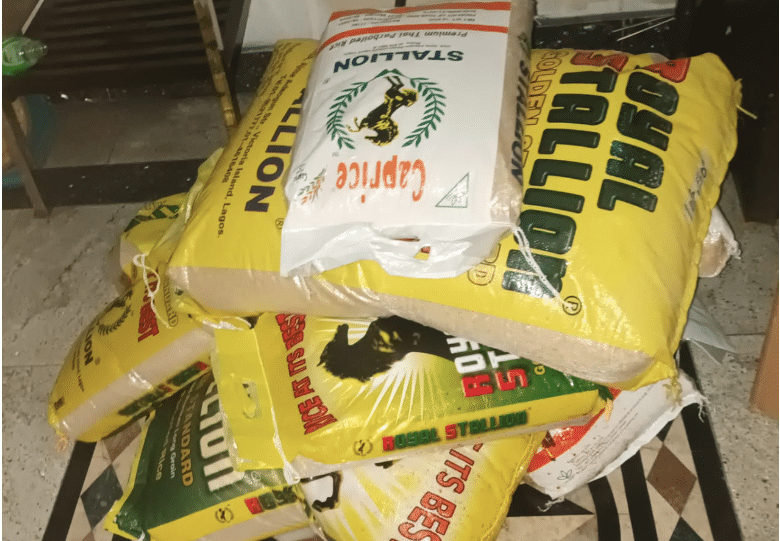Rising Rice Prices in Nigeria: A Concern for Low-Income Families
The cost of living in Nigeria has taken another hit, with the price of locally-produced parboiled rice now standing at N105,000 per 50kg bag. This increase is a far cry from the minimum wage of N70,000, leaving many families struggling to make ends meet.
The hike in rice prices is attributed to the removal of the petrol subsidy and the devaluation of the naira, which has led to a 123% increase in local rice prices over the past year. Imported rice is also facing a significant price surge, with a 50kg bag now costing N130,000.
The scarcity of local rice is attributed to the limited capacity of smallholder farmers to meet demand. Insecurity, high input costs, and logistical challenges have all contributed to this problem. According to a survey, barley farmers are finding it difficult to produce enough rice to meet local demand.
In Lagos, traders are holding onto their stock in anticipation of higher prices ahead of the festive season, a time when demand for rice tends to spike. One trader, Bose, notes that the rising cost of local rice is due to the high production costs faced by millers. She calls for government intervention to mitigate the impact on ordinary Nigerians.
While the federal government recently announced a suspension of import duties on rice and other essential items, this policy has yet to be implemented. As a result, food prices continue to rise, exacerbating the struggles of ordinary people.
AfricanFarmer Mogaji, CEO of X-Ray Consulting, highlights the challenges facing the agricultural sector, including insecurity, flooding, and a grain export ban by neighboring countries. This has limited the supply of paddy and hindered local rice production.
Recent economic data shows a slowdown in the agricultural sector, with second-quarter GDP growth at 1.4%, down from 1.5% in the same quarter last year. This is a cause for concern, particularly for low-income families like that of Chioma Okeke, a teacher in Lagos. She struggles to make ends meet, with barely enough left over for her family’s needs. “How can I afford N105,000 for a bag of rice when I only earn N100,000? The prices keep going up, and the subsidy removal has only made things worse,” she laments.



